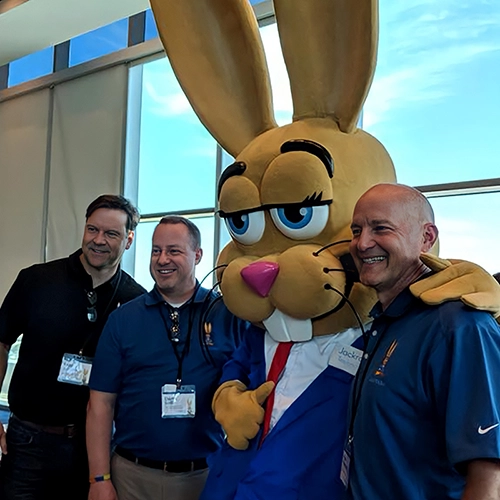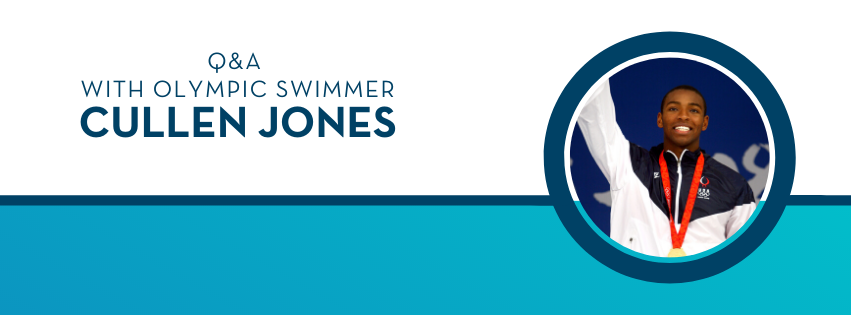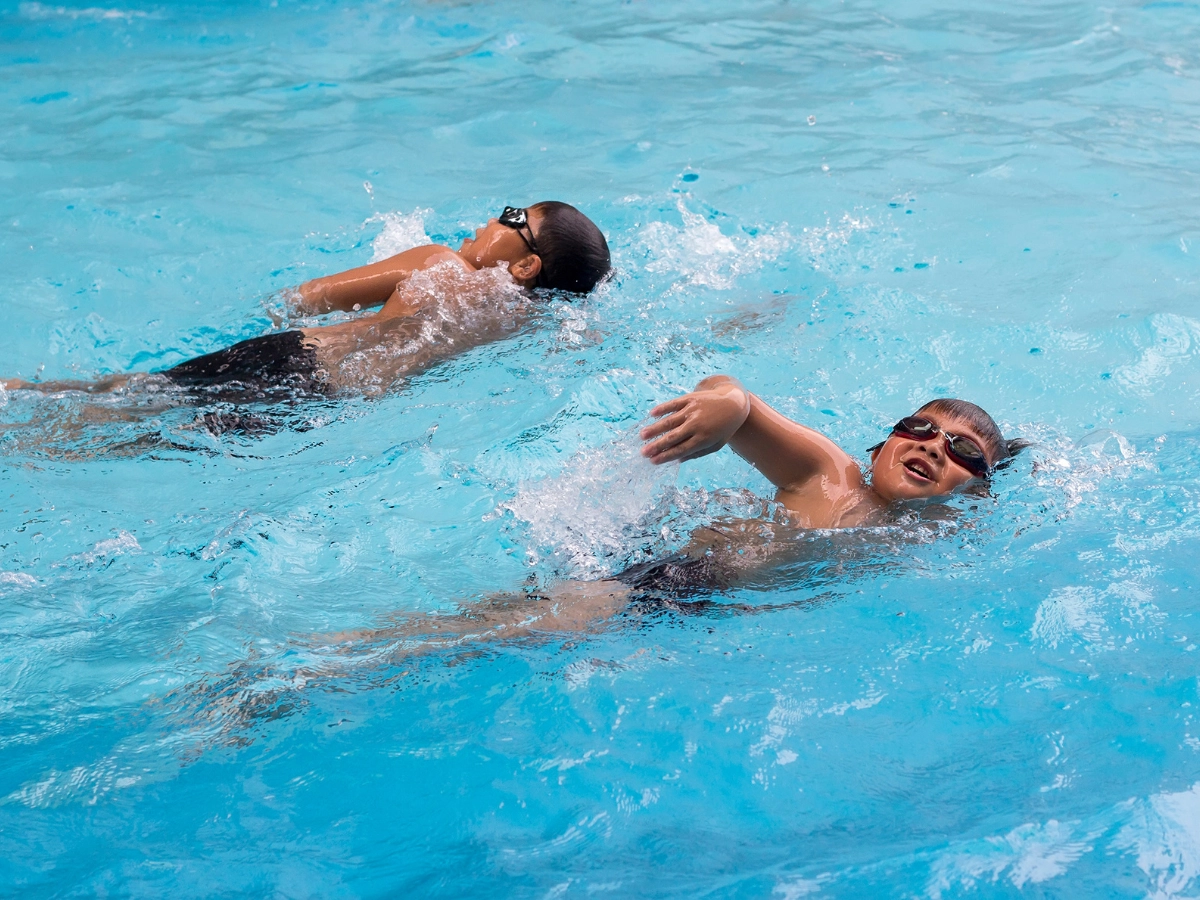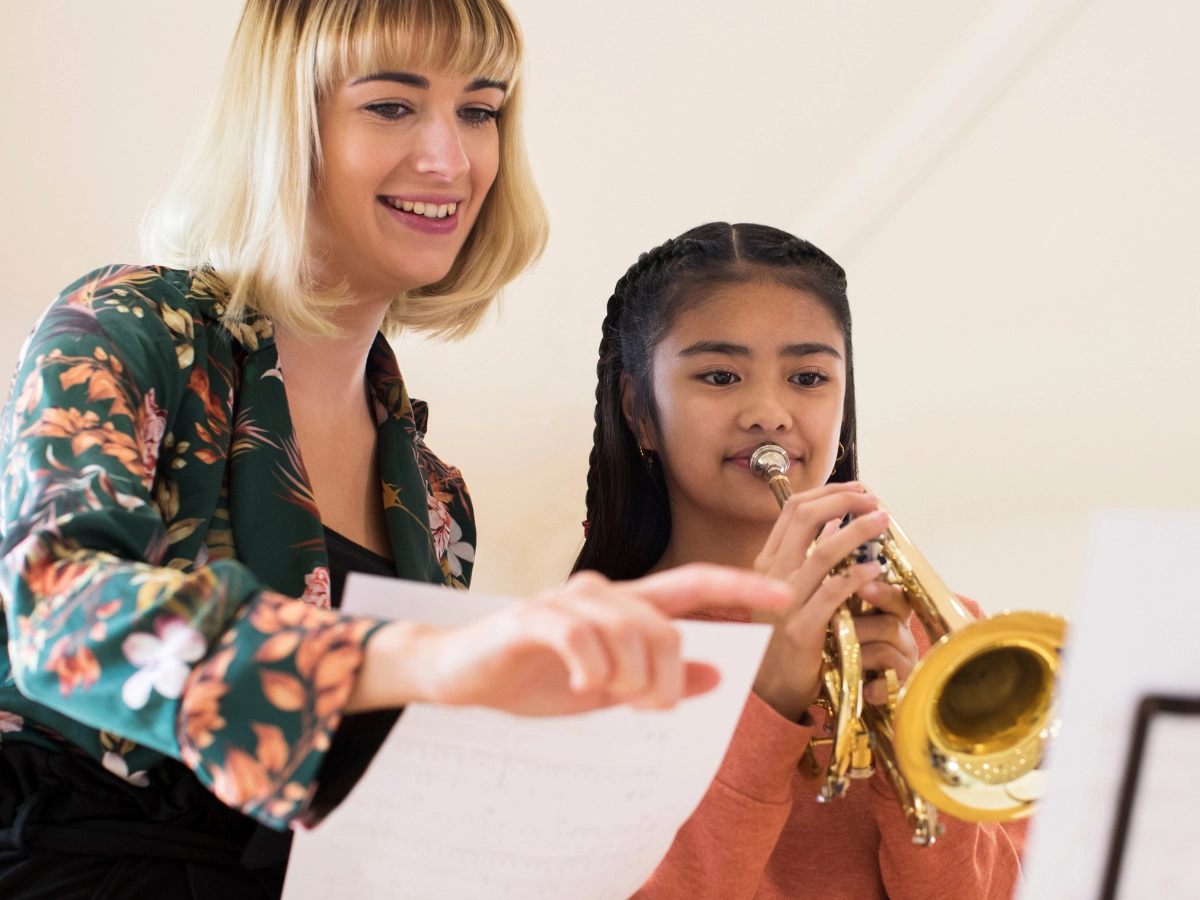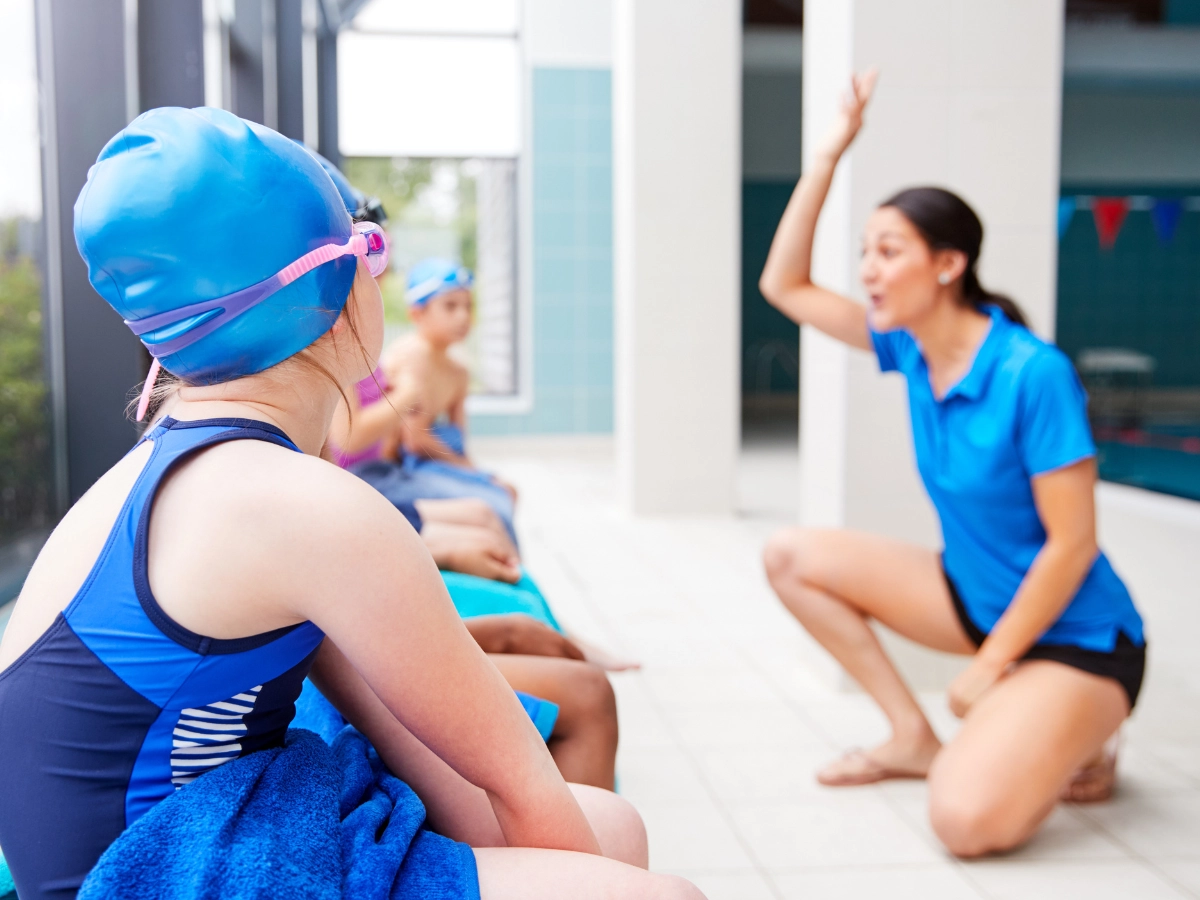In honor of National Learn to Swim Day, I reached out to my good friend and swimmer, Cullen Jones. You may remember the name from the 2008 Summer Olympics in Beijing. He was part of the 4 X 100-meter freestyle relay that not only won the gold medal but also set a new world record.
Water safety and the importance of basic swimming skills are very real things. Jackrabbit Swim and Cullen share the same joy and love for swimming so it was the perfect match! Typically, we would have met for coffee or a family dinner to chat but like most people these days, we connected virtually via Zoom to talk about all things swim!
1. How did you first become so involved in swimming?
I had humble beginnings. I almost drowned at the age of 5. I think that is the biggest thing I try to do when I speak to parents and when I speak to kids about how important it is to learn how to swim is to tell my story.
This was in the ‘90s and I was an only child – loud, spoiled brat that loved being around the water so they took me to a water park and thought nothing of it because they knew that was something I loved to do. My dad knew how to swim but my mom didn’t. We waited an hour to get to this ride. I came down and my dad was getting yelled at to give his inner tube to the next person because it was the most popular ride. As he’s doing that, he didn’t see me come out of the chute and I flipped upside down because I wasn’t heavy enough – tall 5 year old but very skinny.
My mom sees this happening and jumps in but she can’t swim so she starts to drown. My dad had to go get my mom, the lifeguard got me. I was completely passed out and had to be resuscitated but the first thing out of my mouth when I woke up at 5 – and Amber, you know me well enough to know I like to think I am a bit of a comedian – was ‘what’s the next ride we are getting on’ because it didn’t matter.
And that’s why it’s so important to tell parents this. This was not the time of cell phones. It’s so easy to get pulled by a ding or some kind of ping that makes you turn your head. I wasn’t roughhousing – most people expected that I was doing something I wasn’t supposed to be doing. It wasn’t that, it just took a split second.
2. Because of your early experience with swimming, why do you feel like swimming is an important skill for everyone to learn?
I joined the swim team at the Jewish Community Center and I was the only African-American on that team. If it wasn’t for that team and if it wasn’t for that experience of being loved by people that may not have looked like me but they didn’t care – they just wanted everyone to do well.
The reason why I bring this up to this question is because I learned about the Jewish faith in my time there. It is in the faith to teach your child to walk, to talk, to swim. It is something that is built into the faith because they didn’t want their children to drown. And, I feel like that is such a big thing that we should do in all cultures.
When I traveled across the world to Australia, swimming is one of their national sports. Not knowing how to swim there is like not knowing how to drive here- people look at you kind of crazy. I think we need to adopt that here in America because of what the drowning rates look like.
When I first started, African-Americans drown nearly 3 times more than any other race. In 11 years of work, it has moved down to 64 percent and I never would’ve thought that I would see that change. The numbers are starting to drop to 54 percent of Latin Americans and 38 percent of Caucasians. It’s not just one demographic – it’s everyone. Across the board, people are drowning at an epidemic level. It’s just not in our face like other things in the news. It happens every summer – kids are drawn to the pool, parents need their kids to get their energy out so they send their kids to the pool without knowing how to swim.
It’s more than a great sport – it’s a life skill.
3. In your opinion, what is the best age to start with basic swim skills?
I drew my son, Ayvn, in at 6 months old so it’s pretty early for me. A lot of reasons why people pull away from the water is because parents are afraid of the water and they don’t know how to get their children to feel comfortable in the water again because it’s been so long.
I have heard people who say younger than 6 months. Earlier is better because they don’t build up fear of the water.

4. What can parents do during a time where pools are shut down due to COVID-19 to help bring awareness and prevent drowning?
I think a lot of it is keeping them excited about the water. You can buy inflatable pools – that’s what we did. Having your children in and around water. They are going to love it anyway.
I would use technology. I am doing so many webinars right now with swimmers who can’t train. And for them, I tell them to do dryland – ride the bike, do something to be active.
But, when you’re a young swimmer, just keep the love. Watch old videos of swimming. Watch what people are doing. Visualization – children have such a strong imagination. Keeping that love going until we are able to get back in the water. We are going to get back to normal at some point!
5. How do you plan to incorporate the importance of swimming with your son, Ayvn?
Invest in swim lessons. I know that with my background, I am highly competitive. I don’t know if I can teach my own child, but I will try. I think we are bringing up a very big thing – it’s investing – and that’s why we talk about how important it is to learn. It’s a priority.
The best thing about it is it is a life skill. Once they learn, they may get rusty, but it’s like riding a bike. They never forget. And then as a parent, you don’t have to worry when a kid thinks it’s funny to push your child into the pool. It’s not a life or death situation because they already know what to do.

6. Let’s talk about SwimMAC. SwimMAC is a great client of ours and you trained there for many years. Tell me a little bit about your time there.
An 11-year SwimMAC-er. I basically could have started my whole career there.
SwimMAC is my home. It’s funny because there’s a reason why the head coach, Terry, asks me to come in. I’m afraid to go in there. Because I don’t want to catch the bug again. I love SwimMAC and I’ve worn blue and orange for a very long time. My niece is actually swimming there now.
It’s definitely home for me. If you want to see your child soar, you’ve gotta go to SwimMAC.
7. How anxious are you to get back in the pool when the shutdown from coronavirus lifts?
Ya know…before this happened, I would be like ‘I don’t want to go swim’ but now that you’re telling me I can’t, it’s the only thing I want to do.
The other day we had Ayvn in the pool and my wife got him out. I just laid back in the pool and relaxed. She was asking me if I was going to get out and I just wanted to put my face in the water.
All of that to say, yeah, I want to swim pretty bad. I probably won’t swim for long because I am out of shape and tired but just getting in the water and feeling that weightlessness – I can’t wait.
8. What is the biggest thing swimming has done for you?
Swimming teaches you accountability and time management. One of the reasons I started playing basketball – I bounced a ball before I could lift a fork and my dad wanted me to be a basketball player. But swimming took over because when I was younger, I was the best player on my basketball team. We just kept losing and it bothered me because I would put all this effort in and some of the other people weren’t.
I learned very quickly that I didn’t want to be frustrated. The thing about swimming was what I put into it, I immediately got out of it. If I didn’t swim as fast as I could, I could immediately think back to that practice that I missed or maybe there was something that I didn’t do right. That’s what I loved about it – the accountability aspect of it.
Swimmers are student athletes. A lot of swimmers have straight A’s, they have great grades and a lot of people ask ‘how is that’. We have to train – swim, lift, swim, school again. You just get used to that type of pattern. And unfortunately, we just can’t get out of that pattern. It teaches you not only accountability but time management.
9. How active are you in the community currently to encourage the importance of swimming?
I work with Phillips 66 and USA Swimming’s foundation. I have been working with them for 11 years and there’s so many swimmers out there. We have reached 8.2 million kids that can now say they have learned how to swim through this foundation.
I have been on the road quite a bit, every city. Giving lessons, showing the medal, getting people excited. I do feel a very, very strong connection to that. Even though I am retired now, I am still doing work with Phillips 66 and USA Swimming. It’s a blessing. I am going to keep doing it until they tell me ‘Cullen, get out of here’.
And then at home in the Charlotte area, I am giving lessons at Lifetime Athletics. I also just did a webinar with the SwimMAC sprint team. Definitely trying to give back.

10. Do you think swimmers, as athletes, get enough credit? Because I know you and what goes into practices, workouts outside of the pool, I understand but do you think others realize what goes into the sport?
I won’t say that we should get more than anyone else. I think that is unfair. Track runners do the same thing. Track and swimming are sister sports, down to the yardage that we perform at.
I would love to see that be more level. There’s access that you get in football and basketball that you just don’t get in other sports. Especially to platform yourself into another category. I was blessed in 2008 – Michael Phelps was going for his 8th gold medal, I was part of a world record relay, being African-American setting the world record – I had so many different layers to vault off of to make my career. Even in my sport, there are people that struggle to be able to do that. It isn’t for lack of effort or talent. I wouldn’t say that swimming or any sport needs to get more, I just think it needs to be a level playing ground and more even.
11. Speaking of the 2008 Olympics, tell me about your favorite moment. What was that like?
It’s gonna be cheesy. It’s two parts. I swam as fast as I possibly could – I was blacking out after I swam because I just gave it everything.
To stand there after everyone said there’s no way team USA can win, there’s no way. They had to literally quiet team USA down, half the place down, because as we stepped up the place was roaring. It was such an underdog moment for us to win. And then to say our national anthem was pretty insane.
And right after that I walked around because you do a victory lap – that’s where they talk all the pictures. I look up and Jason Leszak’s wife is there crying. I’m standing next to him and I asked him if he was crying and he said ‘I am now because she’s crying’. I look directly next to her and there’s my mom and she’s bawling so I start crying. That was probably the coolest moment.

After talking with Cullen, I definitely found myself pumped and ready to take on the pool. Yes, I have some basic swim skills but hearing his love and passion for the sport made me want to take up a new hobby! So, what have I learned from my good friend besides the fact that I don’t know how to put on a swim cap correctly?
Takeaway #1: Everyone should learn how to swim.
Takeaway #2: You are never too young to start learning how to swim!
Takeaway #3: Never let anything get in the way of your love for swimming.
And much more but I think that covers the highlights!
Download the Jackrabbit Swim ROI Guide!
